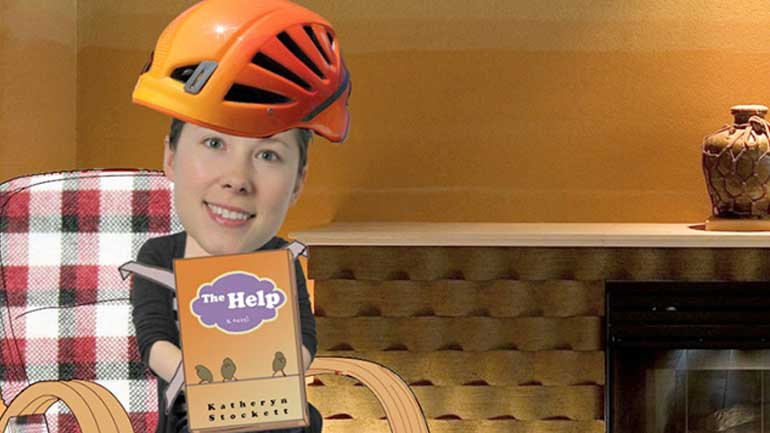ShmoopTube
Where Monty Python meets your 10th grade teacher.
Search Thousands of Shmoop Videos
Society and Class Videos
Play All
We were so moved by Angelina Jolie's overseas adoptions that we created a proposal to bring foreign-born children over by the thousands! Think abou...
It may be the best of times for Chuck Darnay, but it's pretty much constantly the worst of times for Sydney. Poor guy.
Three scantily clad young girls enter a store. No, this isn’t your grandfather about to tell an inappropriate joke. And no, you’re not watching...
Historical fiction novels like The Help can whisk you back to a place and time that you may have only read about in history books. Or... a place an...
Brave New World is supposed be an exciting book about a negative utopia and the corrupt powers of authority. So where’s the big car chase? What's...
Meet Emma Woodhouse of Jane Austen's Emma. She’s a rich young woman with a good social life living in 18th-century England. We bet she has an aw...
"Girl," by Jamaica Kincaid, is a poem—er, a story... er... what is this thing? Either way, it's about a mother's advice to her daughter. And noth...
Great Expectations by Charles Dickens is about a young blacksmith boy (Pip) and his two dreams: becoming a gentleman and marrying the beautiful Est...
Gulliver's Travels is a classic tale of adventure with a dash of what-the-heck-is-happening thrown in for good measure.
Do we need creative arts to survive, or is logic enough? And how can The House on Mango Street help us decide? Check out this video to find out.
This video covers the plot of Jane Eyre, a novel by Charlotte Brontë. In it, Jane Eyre, an orphan-turned-governess with a miserable childhood fall...
Check out this video to find out why Wuthering Heights should never be considered #relationshipgoals.
Can you really learn about human nature by removing yourself from the company of other humans? Henry David Thoreau thought it was a possibility and...
Their eyes may have been watching God, but we think we know who won that staring contest.
We bet you didn't realize Shakespeare was such a rebel. Seriously. If he were around today, he'd be riding a motorcycle, TIVOing Sons of Anarchy, a...
This video summarizes the plot of Brave New World from the point of view of John (you know, the “savage”). It covers the escapism, social casts...
Meet Charles Darnay, the nobleman who spends more time on trial and in prison than attending balls and drinking expensive wine. Don't feel too bad...
The Great Gatsby is set in and around New York City and Long Island. On the big L.I., there are two areas known as "West Egg" and "East Egg." East...
Trying to live up to expectations can be stressful. Watching someone else struggle with it, though? That's just fine.



















